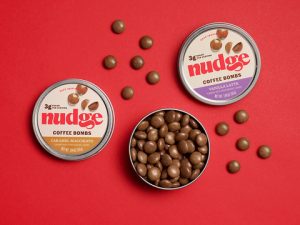Cedar’s Foods Donates $100K to World Central Kitchen for Ukraine Relief
Cedar’s Foods, a Haverhill, Mass.-based company with national distribution of hommus and Mediterranean products, has donated $100,000 for Ukraine relief, to World Central Kitchen to help feed refugees.
Since military operations began in Ukraine, millions of Ukrainians have fled their homes to stay in western Ukraine or other countries and WCK is serving millions of fresh meals to displaced families. Working at a 24-hour pedestrian border crossing in southern Poland, WCK began serving hot, nourishing meals within hours of the initial invasion, and are now serving round-the-clock dishes at eight border crossings across the country.
Additionally, WCK is supporting local restaurants preparing meals in cities across Ukraine including in Odessa, Lviv and Kyiv. WCK teams are also on the ground serving thousands of meals every day in Poland, Romania, Moldova, Hungary, Slovakia, and Spain.
As part of Cedar’s with Heart, the company’s non-profit initiative to invest and honor its employees, communities, and consumers, the national leading hommus brand in the natural and organic grocery channels is committed to fighting food insecurity both in its community and around the world.
“At Cedar’s, we believe in the power of sharing better in the form of authentic, honest foods. Cedar’s with Heart extends that mission to not only share better with the world, but do better for the good of our community and our planet,” said Charles Hanna, CEO and president. “We hope to lead by example through our acts of service and our commitment to promote positive change for the next generation and generations to come. The humanitarian crisis in Ukraine is one of the worst that we have seen in decades. Our commitment to fight food insecurity transcends borders and when we heard of the great work WCK is doing, we wanted to help.
“Knowing better means doing better not only for our community, but for our global community as well. No family should have to worry about where their next meal will come from, especially after fleeing their homes and making the daunting journey to refuge,” Hanna said. “Food is a human necessity, a common ground among us all. It provides comfort and a sense of hope and stability. As a leader in the food industry, we are proud of the work WCK is doing on the frontlines and honored to be able to support them in feeding Ukrainian refugees.”
World Central Kitchen is first to the frontlines, providing meals in response to humanitarian, climate and community crises. When disaster strikes, WCK’s Chef Relief Team mobilizes to the frontlines with the urgency of now to start cooking and provide meals to people in need. By partnering with organizations on the ground and activating a network of food trucks or emergency kitchens, WCK provides freshly made, nutritious meals to survivors of disasters quickly and effectively.
Is your specialty food company contributing to Ukraine relief? Let our Senior Editor, AJ Flick, know by emailing her at aj_flick@oser.com and subscribe to Gourmet News for updates!
Miami Marlins Sign Multi-Year Deal With nudge Coffee Snacks
 The Miami Marlins baseball team has entered into a multi-year partnership with nudge coffee snacks, a new brand sponsor and coffee confection startup based in Miami. The brand’s Coffee Bombs and Coffee Bars will be the Official Coffee Snacks of the Marlins.
The Miami Marlins baseball team has entered into a multi-year partnership with nudge coffee snacks, a new brand sponsor and coffee confection startup based in Miami. The brand’s Coffee Bombs and Coffee Bars will be the Official Coffee Snacks of the Marlins.
“With our company’s roots based right here in Miami, it was critical for us to form our first major partnership with a progressive organization that has a commitment to excellence – both winning on the field and within their community,” said Tom Ferguson, CEO of The Whole Coffee Company, parent company for nudge. “Our nudge coffee snacks are keto friendly, have natural caffeine and taste delicious. We cannot wait to make them available to all Marlins fans through loanDepot park.”
The coffee snacks will be made available at various locations of loanDepot park, including the PNC Club and El Mercadito, a grab-and-go location on the main concourse.
The nudge brand will be the exclusive digital partner of the Miami Marlins “Plays of the Month” where fans can enjoy the outstanding efforts of the Marlins team, as they “do the undoable.”
Subscribe now to Gourmet News for updates on the specialty food industry.
Healthy Snack StickyLickits Features YouTuber at Walmart in 11 States
 Healthy snack StickyLickits, a line of edible stickers that entice kids to be more adventurous eaters, especially when it comes to fruits and veggies, is featuring YouTube kidfluencer Ryan Kaji of Ryan’s World at more than 350 Walmart stores in California, Arizona, Utah, Washington, Colorado, Idaho, Nevada, Wyoming, Oregon, New Mexico and Montana.
Healthy snack StickyLickits, a line of edible stickers that entice kids to be more adventurous eaters, especially when it comes to fruits and veggies, is featuring YouTube kidfluencer Ryan Kaji of Ryan’s World at more than 350 Walmart stores in California, Arizona, Utah, Washington, Colorado, Idaho, Nevada, Wyoming, Oregon, New Mexico and Montana.
“Every parent knows that it can be a struggle for young children to taste and eat the healthier foods on their plates,” said Linda York, grandmother of two and founder and CEO of StickyLickits. “Our all-natural, edible stickers help to motivate children to eat more fruits and vegetables because they make mealtime more fun. Parents also love StickyLickits because the stickers encourage children to taste a variety of foods and build healthier eating habits.”
Using the bite-size stickers is simple: kids simply lick, stick, and eat their creations. The dissolving stickers are 100 percent natural with a tapioca base that kids say tastes like marshmallows or cotton candy. StickyLickits do not contain sugar, additives, or allergens like soy, dairy, or peanuts. They’re also kosher, vegan, non-GMO and gluten-free. Packages contain 30 stickers each and can be found in Walmart’s produce department, right next to the fruits and veggies they’re designed to encourage.
“StickyLickits helps to capture the lively imaginations that children bring to the dinner table,” said York. “Most importantly, the stickers help to introduce and nurture a healthy relationship with food.”
While formulating a sticker with all-natural ingredients has been a top priority from the start, so has the stickers’ design. Researchers at the University of Bari Aldo Moro in Italy found that 5- and 6-year-olds choose healthy foods such as kiwis, carrots and tomatoes over their usual name-brand snacks if the healthy items had a sticker featuring their favorite cartoon character. Even kids who had never tried or overtly disliked the healthier options were still swayed by the sticker.
Now, three years after the healthy snack first launched in October 2019, StickyLickits span numerous designs featuring popular characters including Sesame Street, Paw Patrol, SpongeBob SquarePants and now Ryan’s World, along with the original Doodle Dums and Making Faces designs.
StickyLickits’ latest design, which rolls out exclusively in select Walmart stores this month, showcases nine-year-old Ryan’s World influencer Ryan Kaji’s animated alter egos: Super Hero – Red Titan, Daring Detective – Super Spy, and Global Adventurer – World Tour. A slight shift from the previous cartoon-inspired packaging, the new design reflects the growing prominence of kidfluencers and their loyal following.
“Aligning with a brand like Ryan’s World adds to the appeal of StickyLickits,” said York. “Ryan is fun, familiar, and relatable to kids. He and his family are also big believers in the importance of encouraging healthy eating habits.”
The Ryan’s World franchise spans a YouTube channel with more than 30 million subscribers, as well as games, apps, and consumer products. While much of the content centers on play and toys, Ryan and his family also share informative, educational content featuring everything from science experiments to family adventures.
Learn about new specialty food products in the pages of Gourmet News. Subscribe now!






